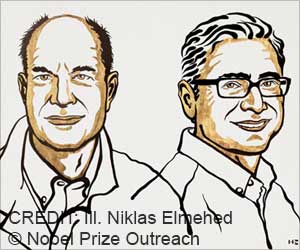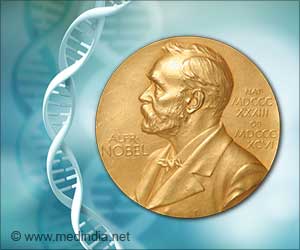Karikó and Weissman's mRNA breakthroughs spark a vaccine revolution, saving millions in the COVID-19 crisis.
- Karikó and Weissman's base modifications revolutionized mRNA, enabling rapid vaccine development
- mRNA vaccines heralded unprecedented speed and efficacy in the fight against COVID-19
- Their work not only saved lives but changed the landscape of vaccine technology
From Breakthrough to Lifesaver: The Nobel-Winning mRNA Revolution
mRNA Vaccines: A Promising Paradigm
The advent of in vitro transcription in the 1980s heralded a new era in mRNA production. Yet, the inherent instability and inflammatory reactions associated with in vitro transcribed mRNA posed significant challenges.
Karikó and Weissman's Collaborative Endeavor
The collaboration between
Discovery of Nobel Prize Winning Vaccine
Karikó and Weissman’s revelation that chemically modified bases in RNA from mammalian cells averted inflammatory reactions marked a seismic shift in understanding cellular responses to different forms of mRNA.
The Significance of Base Modifications
Subsequent studies by the duo demonstrated that base modifications not only curtailed inflammatory responses but also significantly boosted protein production compared to unmodified mRNA. This research eliminated key obstacles in the clinical application of mRNA.
Realization of mRNA Vaccines' Potential:
Following their groundbreaking discoveries, interest in mRNA technology surged. By 2010, companies were already engaged in developing mRNA-based vaccines against various viruses. When the COVID-19 pandemic emerged, base-modified mRNA vaccines were created at an unprecedented pace. These vaccines exhibited remarkably high efficacy rates and received approval in December 2020.
Future Horizons of mRNA Vaccines
The extraordinary adaptability and swiftness with which mRNA vaccines can be developed pave the way for their utilization against other infectious diseases. Furthermore, this technology holds promise for delivering therapeutic proteins and treating specific types of cancer.
Vaccines as an Immunity Delivery Sytem
Vaccination has been a cornerstone in the fight against infectious diseases. Traditional vaccines, based on weakened or inactivated viruses, have been instrumental in controlling diseases like polio and measles.Advances in molecular biology enabled the development of vaccines based on individual viral components, such as those against hepatitis B and human papillomavirus. Additionally, vector-based vaccines, like those targeting the Ebola virus, were introduced. However, large-scale cell culture requirements limited the speed of vaccine production during outbreaks and pandemics.
As clinical trials, overseen by regulatory bodies like the Food and Drug Administration in the United States, assessed safety and efficacy, the public health response became a global effort. Vaccine manufacturers utilized advanced platforms, encapsulating the mRNA within lipid nanoparticles.
The joint awarding of the Nobel Prize in Physiology or Medicine for 2023 to Katalin Karikó and Drew Weissman signifies their momentous contributions to the development of mRNA vaccines against COVID-19. Their discoveries have not only saved countless lives but have also transformed our approach to vaccine development and unlocked new possibilities for therapeutic interventions in the future (1✔ ✔Trusted Source
Press release: The Nobel Prize in Physiology or Medicine 2023
Go to source).
"In the crucible of a global crisis, the brilliance of Karikó and Weissman illuminated a path towards hope. Their work has not only protected us today but has forged a legacy that will shape the future of medicine for generations to come."
Reference:
- Press release: The Nobel Prize in Physiology or Medicine 2023 - (https://www.nobelprize.org/prizes/medicine/2023/press-release/)
Source-Medindia













